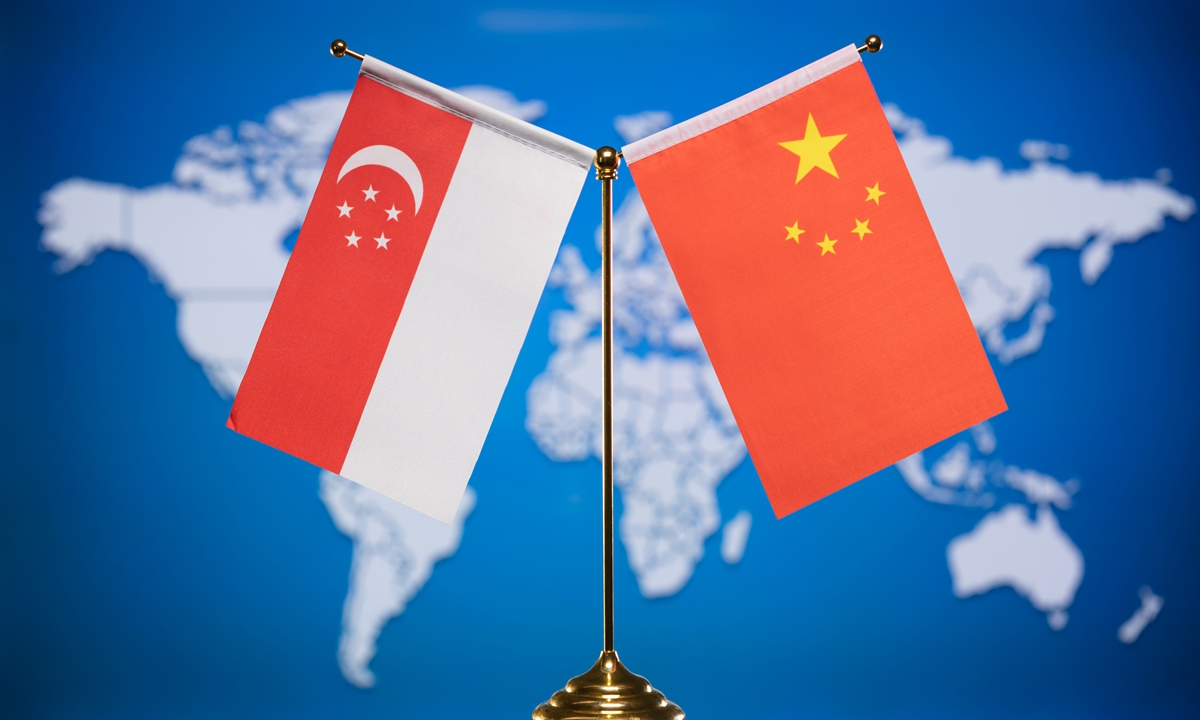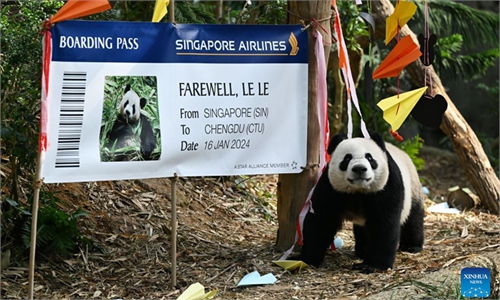China, Singapore agree on mutual visa exemption; agreement to take effect on Feb 9

China-Singapore photo:VCG
China and Singapore on Thursday agreed on mutual visa exemption, which will officially come into effect on February 9, 2024. Holders of ordinary passports from the two countries may enter the other country without a visa when engaging in activities such as tourism, family visits, and business or other private matters, with a stay of no more than 30 days.
For those intending to engage in activities such as employment, journalism, prior approval is required, and those planning to stay in the other country for more than 30 days must obtain the corresponding visa before entering.
China attaches great importance to people-to-people exchanges with Singapore. With the concerted efforts of both sides, the two sides officially signed the Agreement Between the Government of the People's Republic of China and the Government of the Republic of Singapore on the Mutual Exemption of Visa Requirements for Holders of Ordinary Passports in Beijing today, Wang Wenbin, spokesperson of the Chinese Foreign Ministry, told at a press conference on Thursday.
The entry into force of the agreement before the Chinese New Year of the Dragon is a new year gift for the peoples of the two countries, Wang noted.
It will further enhance cultural and people-to-people exchanges between China and Singapore and promote the steady progress of bilateral relations and cooperation in various areas, he noted.
As of now, China has established mutual visa exemption agreements with 157 countries, covering various types of passports. It has also reached agreements or arrangements to simplify visa procedures with 44 countries and has achieved comprehensive mutual visa exemption with 22 countries, including Singapore, the Maldives, and Kazakhstan.
In addition, over 60 countries and regions offer visa-free entry or visa-on-arrival facilities to Chinese citizens. The convenience of outbound travel for Chinese citizens has significantly improved, enhancing the "value" of the Chinese passport progressively.
Wu Xi, director-general of the Consular Department at China's Ministry of Foreign Affairs, was quoted as saying in a media report by the China Central Television that China has recently introduced a series of measures to facilitate people-to-people exchanges.
This fully demonstrates China's commitment to promoting a high-level opening-up to the outside world. "We welcome friends from all countries to travel, do business, invest, and study in China," Wu said.
Wu expressed hope that both Chinese and foreign friends respect the local laws, regulations, and bilateral agreements, jointly maintaining the order of international exchanges.
According to data from Qunar, a major travel platform, following the announcement of visa exemption between China and Singapore, there has been an increase in searches for flights and hotels in Singapore, with hotel searches doubling since the announcement and continuing to rise.
Singapore ranks the fifth most-popular destination for the Spring Festival, with Shanghai, Guangzhou, Beijing, Hangzhou, and Xiamen being the top departure cities.
On another travel platform Trip.com, there was a rapid surge in real-time search popularity for Singapore following the announcement. Within 10 minutes after the announcement, the heat index for Singapore-related travel products increased by over 30 percent and continued to trend upward.
Also, enthusiasm among Singaporean travelers for travel to China also jumped sharply. Data from Trip.com indicates a more than 20 percent increase in searches for China by Singaporean tourists, and since the beginning of the year, there has been a 66 percent increase in bookings for travel products to China by visitors from Singapore.
Singapore and China are cooperative partners in the China-proposed Belt and Road Initiative, and the tourism sector has become an important facet of interactions and exchanges between the two countries. In February 2023, Singapore was among China's first batch of destinations to open for outbound tourism.
The mutual visa exemption policy will provide more convenience for travelers between the two countries and also bring new market opportunities for tourism enterprises in both countries.
With the upcoming Spring Festival holidays, Singapore is also a significant outbound travel destination for Chinese tourists. Data from Trip, as of January 24, 2024, shows that bookings for the Spring Festival holidays by Chinese tourists to Singapore have increased more than 14 times compared to last year.
Global Times



